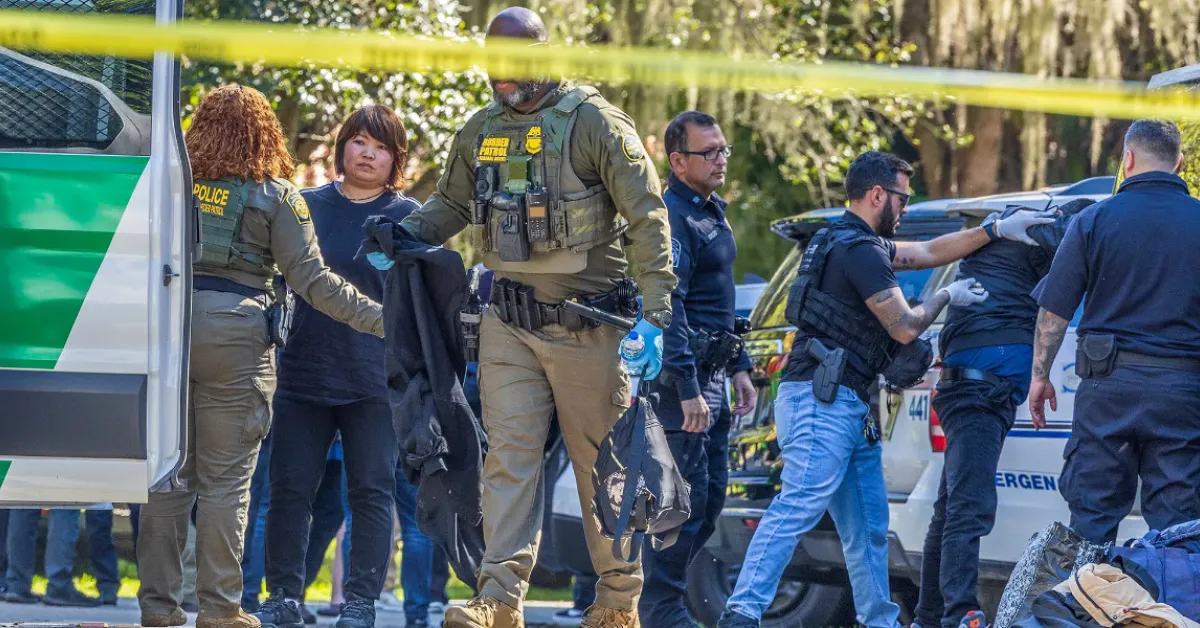ICE Detains Hundreds in Florida's Largest Immigration Enforcement Operation

A large-scale immigration enforcement operation in Florida, dubbed "Operation Tidal Wave," resulted in the detention of nearly 780 individuals over the past week.
This signals a significant intensification of immigration enforcement under the current administration. The coordinated effort between federal and state law enforcement agencies has drawn praise from supporters as a necessary step to uphold immigration laws, while critics warn of the operation’s humanitarian impact on immigrant communities and the potential for widespread fear among vulnerable populations.
The operation, which commenced on Monday and spanned four days, primarily targeted individuals residing in the United States illegally who had final deportation orders. According to data released by US Immigration and Customs Enforcement (ICE), more than 275 of those detained were immigrants with such orders. The remaining arrests included "collateral" detentions, involving individuals who were not primary targets but were apprehended during the enforcement actions.
The operation was conducted under the authority of ICE’s 287(g) program, a provision that enables the federal agency to form formal partnerships with local law enforcement to enforce immigration laws. This framework allows designated local officials to act as deputies for immigration-related tasks, including detentions and arrests. Florida has emerged as a focal point for such collaboration, boasting the highest number of 287(g) agreements in the nation.
Approximately 200 law enforcement agencies in the state, ranging from sheriff's offices to campus police departments, have entered into these partnerships. Acting ICE Director Todd Lyons notes that the program has expanded significantly nationwide, with a 371 percent increase in agreements signed with local agencies. Homeland Security Assistant Secretary Tricia McLaughlin characterises the Florida operation as the "first of its kind" and suggests it could serve as a model for similar enforcement efforts across the country.
“This is a preview of what’s to come throughout the nation,” McLaughlin stated.
The scale and methodology of the operation have drawn sharp criticism from immigrant rights advocates. Detractors argue that the heavy reliance on collateral arrests exacerbates the adverse social consequences of such enforcement actions. Critics also contend that these policies disproportionately affect immigrants who have lived in the United States for years, often establishing deep ties to their communities.
Tessa Petit, the executive director of the Florida Immigrant Coalition, voices alarm over the broader implications of the arrests. “This level of enforcement will undoubtedly tear families apart,” Petit asserts. “It undermines the welcoming spirit that has defined Florida as a home for immigrants for decades.”
While ICE officials have defended the necessity of collateral arrests to achieve their enforcement objectives, community leaders worry that these tactics contribute to an environment of fear and mistrust. The arrests occurred in multiple urban centres across Florida, including Tampa, Orlando, Jacksonville, Stuart, Tallahassee, and Fort Myers, underscoring the wide geographical scope of the operation.
The expansion of federal-local enforcement partnerships has not been universally embraced. In some cases, local officials have actively resisted participation in ICE’s initiatives. Notably, the Fort Myers city council recently voted against an agreement to train city police for immigration enforcement. In response, Florida’s Republican Attorney General James Uthmeier launched an investigation into the council’s decision. Republican Governor Ron DeSantis echoes a stern warning to local jurisdictions unwilling to cooperate with ICE.
“Florida will ensure its laws are followed, and when it comes to immigration, the days of inaction are over. Govern yourselves accordingly,” DeSantis said in a statement.
Despite the resistance, ICE Deputy Director Madison Sheahan expresses confidence in the continued expansion of 287(g) partnerships across the nation. Sheahan points to successful collaborations in other states, including Texas and Virginia, as evidence of the program’s growing reach and influence. The broader national discourse on immigration enforcement has been further complicated by high-profile deportation cases that have elicited public and legal scrutiny.
One such case involves Kilmar Abrego Garcia, a Salvadoran immigrant who was deported to a notoriously dangerous prison in El Salvador. Abrego Garcia, who was living in Maryland before his removal, had been fighting his deportation in US courts. The Supreme Court recently ruled that the federal government must facilitate Abrego Garcia’s return, citing due process violations in his removal. A federal appeals court previously criticised the deportation as a shocking breach of fundamental liberties.
El Salvadoran President Nayib Bukele has indicated that his administration will not cooperate with US efforts to repatriate Abrego Garcia, while his legal team continues to contest the case in court. Although Trump administration officials initially sought his return, the White House has reportedly reversed its stance, further complicating the narrative around this contentious case.














Add new comment